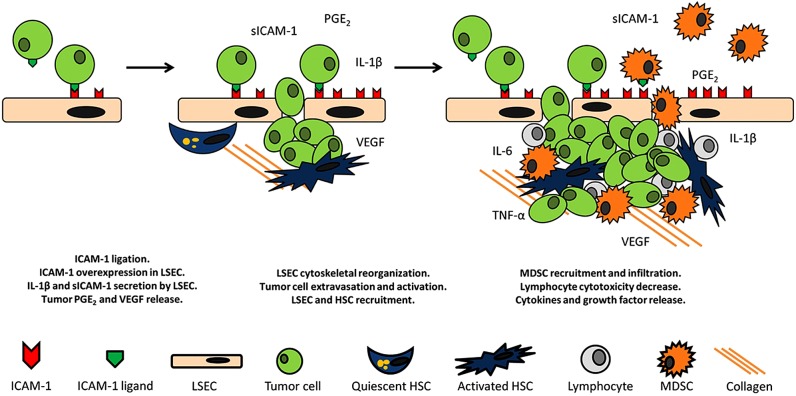Figure 2.
ICAM-1 mediated protumoral pathways. ICAM-1 ligation in LSECs triggers the secretion of sICAM-1 and IL-1β concomitant to the upregulation of ManR causing a decrease in the cytotoxic potential of LSLs. Furthermore, ICAM-1 activated tumor cells secrete VEGF and PGE2 facilitating the recruitment of MDSCs, LSECs and HSCs leading to angiogenesis. HSCs block lymphocyte mediated tumor clearance by interacting with lymphocyte ICAM-1. Moreover, MDSCs infiltrate the liver through a process involving upregulation of ICAM-1 expression in LSECs. Consequently, the antitumor response of infiltrating and resident lymphocytes is impeded. Additionally, ICAM-1 ligation in stromal cells drives to TNF-α, and IL-6 release, amplifying the effect on tumor progression. ICAM-1, intercellular adhesion molecule-1; LSECs, liver sinusoidal endothelial cells; VEGF, vascular endothelial growth factor; MDSCs, myeloid-derived suppressor cells; HSCs, liver sinusoidal endothelial cells.

